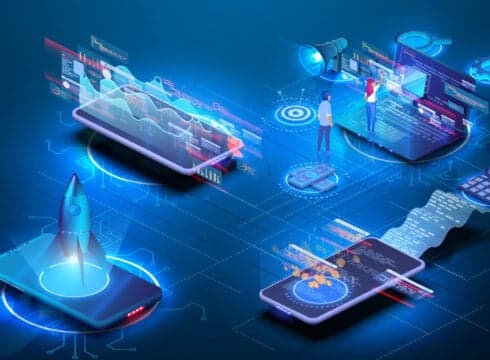The Ministry of Electronics and Information Technology has established these working groups to formulate guidelines and frameworks for the efficient implementation of e-governance projects
The reports on anonymisation of data and mobile security guidelines are currently under review
The development of guidelines for zero-trust architecture, online exams, and IoT devices is ongoing
Inc42 Daily Brief
Stay Ahead With Daily News & Analysis on India’s Tech & Startup Economy
The government has reportedly set up five working groups to tackle critical issues, including data anonymisation, zero trust architecture, IoT and mobile device security and digital education.
The Ministry of Electronics and Information Technology (MeitY) has established these working groups to formulate guidelines and frameworks for the efficient implementation of e-governance projects across ministries and government departments, ET reported.
“We are working with various ministries on the project. The current guidelines for some aspects, such as mobile device security or online learning and examinations systems, will need to be revised in light of the changing technologies,” the report said, citing an IT ministry official.
The reports on anonymisation of data and mobile security guidelines are currently under review, while the development of guidelines for zero-trust architecture, online exams, and IoT devices is ongoing, as per the official.
These standards and frameworks will form an integral component of the revised India Digital System Architecture. A preliminary version of this architecture was made available for public feedback in 2022
“Technologies such as artificial intelligence or machine learning have undergone complete shape-shifting in just the last six months. The ideas that were proposed two years ago, therefore need to be revised completely,” another IT ministry official said as quoted in the report.
For instance, contemporary AI systems must consider not just fundamental, shared, and reference components, but also their compatibility with other technologies like IoT.
Based on the recommendations of the working groups, it is expected that the government will maintain responsibility for designing, developing, and managing the foundational components of these technologies and sectors while permitting the creation of applications and services to be built upon them.
As digital services evolve, boundaries between functions, jurisdictions, and public-private organisations blur due to interdependencies and citizen-centric design. Digital transformation, agile development, and emerging technologies like AI, ML, IoT, and DLT drive the shift towards end-to-end services and the emergence of dynamic digital ecosystems.
India Digital Ecosystem Architecture 2.0 or InDEA 2.0 is a framework that enables Governments and private sector enterprises to design IT architectures that can span beyond their organiatsional boundaries and enable delivery of holistic and integrated services to the customers, as per a document released by MeitY earlier.
While InDEA2.0 builds upon the principles and models recommended in India Enterprise Architecture (IndEA 1.0 – 2018), it adopts a radically different approach to architecture development. It addresses the architectural needs of an ecosystem rather than of an enterprise which was the focus of its predecessor.
Furthermore, InDEA 2.0 presents a holistic framework comprising 27 principles categorized into five groups: Ecosystem Principles, Architecture Principles, Business Principles, Technology Principles, and Architecture Governance Principles.
{{#name}}{{name}}{{/name}}{{^name}}-{{/name}}
{{#description}}{{description}}...{{/description}}{{^description}}-{{/description}}
Note: We at Inc42 take our ethics very seriously. More information about it can be found here.


